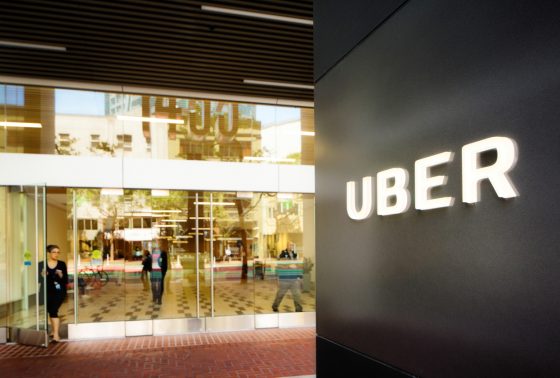The jig is up for the gig economy

On the back of other significant cases, the Post Office’s recent employment tribunal heralds a big change for the gig economy.
As predicted, Uber’s recent announcement to award their drivers with worker status after losing a five-year legal battle is having far-reaching consequences on the gig economy model. Now, the Post Office is at the centre of a tribunal which could shake up the employment rights of millions.
120 sub-postmasters, representing 8,500 of their colleagues across the UK, have taken the Post Office to an employment tribunal. Like Uber’s drivers, the sub-postmasters aim to be classified as ‘workers’ (rather than ‘self-employed’) and gain rights including minimum wage, paid holiday leave, pensions and sick pay.
The case is due to be heard by the Central London Employment Tribunal in June 2021. If the sub-postmasters are successful, the post office will face a multi-million-pound payout, including a large amount of PAYE tax if the sub-postmasters are deemed as ’employees’.
This also will have huge ramifications on the gig economy model, and could inspire millions of gig workers to claim their rights.
This case shows that no company is above the law when it comes to providing the correct rights and entitlements for the people who work for them.
Employment Categories
If you’re wondering what that difference between ‘worker’, ’employed’ and ‘self-employed is’, this might help.
Traditionally, work in the UK has been divided between three main groups:
Employed: mutual obligation between the employee and employer. The employer exercises complete control and direction, and in return employees enjoy a package of terms and conditions, often with contractual enhancements exceeding statutory provisions.
Workers: more arms-length in the employment relationship. They receive basic provisions including minimum wage, statutory sick pay and holidays, but little more. Those finding work through an agency (currently estimated at close to one million in the UK) are typically classed as workers.
Self-Employed: no mutuality of obligation, control or direction. In the past, the self-employed tended to be craftsmen – builders, plumbers, electricians, decorators. You agree a price with them and they, or someone they appointed, arrive to do the work, direct themselves, and manage their own schedules, time off, and so on.
How the gig economy disrupted the traditional model
Some organisations have always relied on people external to their organisation. Agency workers, seasonal, casual and bank staff , and the self-employed have often provided ad-hoc support. But today’s high technology workplace is wreaking havoc with the traditional employer/employee model. The changing technologies of the 21st century have brought a more transient workforce than ever before – flitting from project to project and workplace to workplace.
The gig model means that staff can (hypothetically) enjoy a flexible self-employed lifestyle whilst employers cut costs due to a lack of obligations. However this case and others suggest this arrangement disproportionately favours the company (and their savings) over the wellbeing and rights of staff involved.
With the rapid growth of the gig economy in recent years, it’s likely that there will be many more tribunals like this on the horizon.
What was Uber’s significance in shaking up the gig economy
With the explosion of technological innovation over the last twenty years, the line between employment and self-employment has become increasingly blurred. There is no better example than Uber.
Uber disrupted the market by providing easy access to drivers via the app and low fares, owing these to its gig economy business model which placed Uber as a 3rd party booking agent for its drivers. Unfortunately, that’s not a view shared by the London employment tribunal in 2016, which said: “The notion that Uber in London is a mosaic of 30,000 small businesses linked by a common platform is to our minds fairly ridiculous.”
After a five year legal battle, Uber were obligated to award their drivers with worker status (rather than self-employed) meaning they are entitled to minimum legal, holiday and pension rights in March 2021.
There is still some progress to go, such as Uber compensating for past missed entitlements, but despite these issues this is a significant case that shows that no company (however big) is above the law, and all employers are responsible for providing the correct rights and entitlements for the people who work for them.
And they’re not the only major technology business facing similar challenges.
The House of Commons Select Committee on Business, Energy and Industrial Strategy launched an inquiry into the gig economy and the future world of work, whilst HMRC is investigating whether such companies are avoiding tax and national insurance obligations.
HMRC launched a major inquiry into logistics giant Hermes and its parcel delivery drivers around the same time. Take-away food delivery company Deliveroo is facing similar challenges, and there are many more waiting in the wings. At the heart of the matter is the assertion that those providing services for Uber, Hermes, Deliveroo and the like are all self-employed.
So what does this mean for employers?
This recent tribunal with the Post Office, on the back of Uber’s case, could have repercussions around the world for the gig economy model. Already other giant businesses operating with ‘self-employed’ staff members are being investigated. Employers should revaluate their staff members’ employment statuses to ensure they have the correct classifications as this topic gains momentum.
Considering HR insurance that covers any employment tribunal costs may comfort employers who are concerned about the changing rules when it comes to employment rights and legislation.



